Sara Davidson
|March, 9, 2019
What happens when a new technology is so disruptive that secrets long buried are unearthed, creating havoc and, in some cases, wonder?
Back in the 80’s, before we had internet or mobile phones, I created a TV series on ABC called HeartBeat, about a group of women ob-gyns. At that time, there were few women doctors delivering babies, and the show was based on the first all-female group of ob-gyns in Los Angeles.
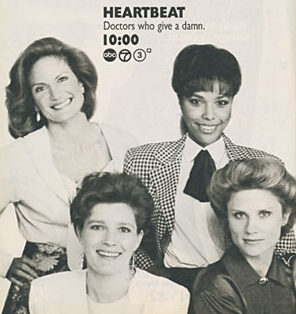
Kate Mulgrew and Actresses
in HeartBeat
After hanging around their office for months, I wrote an episode about an orthodox Jewish couple having fertility problems.
The doctor asks if they would consider using a sperm donor. The couple recoil, especially the husband. But the doctor says she’ll mix sperm from the donor with the husband’s sperm, so “only God will know who the father is.”
The husband repeats, “Only God will know.” Then, slowly, he nods.
A great number of children were born from this method, from the 1950s on, and the donor, usually a student who needed money, was promised anonymity. But today, with DNA testing widely available, it’s not only God who knows. There are websites and support groups for Donor Conceived People (DCP), like the Donor Sibling Registry, which can often help people find their bio dads. The dads, who donated decades ago, may discover they have as many as 30 offspring. Wild? Hard to grasp? A California painter has met 18 of his kids so far.
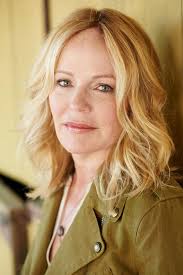
Dani Shapiro, an accomplished and exquisite writer, has written a book about this, Inheritance, which instantly became a N.Y. Times bestseller. She relates how she discovered, through a DNA test, that the father she’d loved, who came from a line of distinguished rabbis with whom she’d identified, was not her biological father. She was shocked, unhinged, and felt her sense of self was “broken.”
With her journalistic skills, she located her bio dad, a doctor who was Christian and, as a medical student, had donated sperm to help cover his tuition. He was paid $100–equivalent to $1,000 today—and promised anonymity. As another sperm donor recalls, “There was no way, back then, that anyone could find us. It was inconceivable that DNA would follow us somewhere down the road.”
Ram Dass, the spiritual leader who’s always been ten years ahead of the curve, discovered in 2009 that he had a son he’d never known about, and a granddaughter. The son was a businessman, Peter Reichard, in North Carolina, who liked to eat pork, smoke cigars, and “did not go in for spirituality.” But the physical resemblance was clear, and they shared character traits.
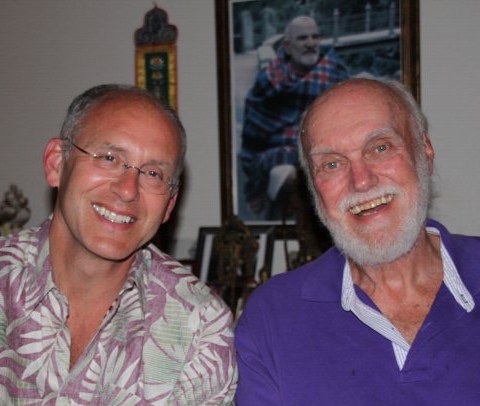
Peter Reichard and Ram Dass
Ram Dass had never been a sperm donor. As Richard Alpert, a primarily gay man teaching psychology at Stanford in the ‘50s, he’d had a one-night stand with a woman who was about to marry someone else. They’d used a condom, but “it slipped,” she said later. DNA testing did not exist then, so when she found she was pregnant, she had no way to know if the father was her husband or Alpert.
More than fifty years later, Ram Dass received a letter from a stranger saying, “I believe you may be the father of my older brother.” Ram Dass dismissed it, thinking, “Someone’s trying to hustle me.” He’d never wanted children and had distanced himself from his own family, famously saying, “If you want to see how enlightened you are, go spend a week with your family.”
A friend took the initiative to respond to the letter, arranged for medical DNA testing, and the results were unequivocal: Ram Dass was the father.
I wrote a story about this—how the pregnancy had happened and the consequences—for the New York Times Magazine, but before I turned it in, the editor who’d assigned it was replaced by a different man, who promptly killed the piece. It’s just been published as a Kindle single, where you can read the remarkable story, told from the father’s and the son’s points of view.
There’s another story I want to tell you that’s similar to that of Ram Dass—a father who created a child he never knew about—and is more typical of how DNA tests are upending people’s beliefs about their ancestry.
A friend, Nance, told me three years ago that she and her daughter, Kim, had just found out that the father who’d raised Kim was not her biological dad.
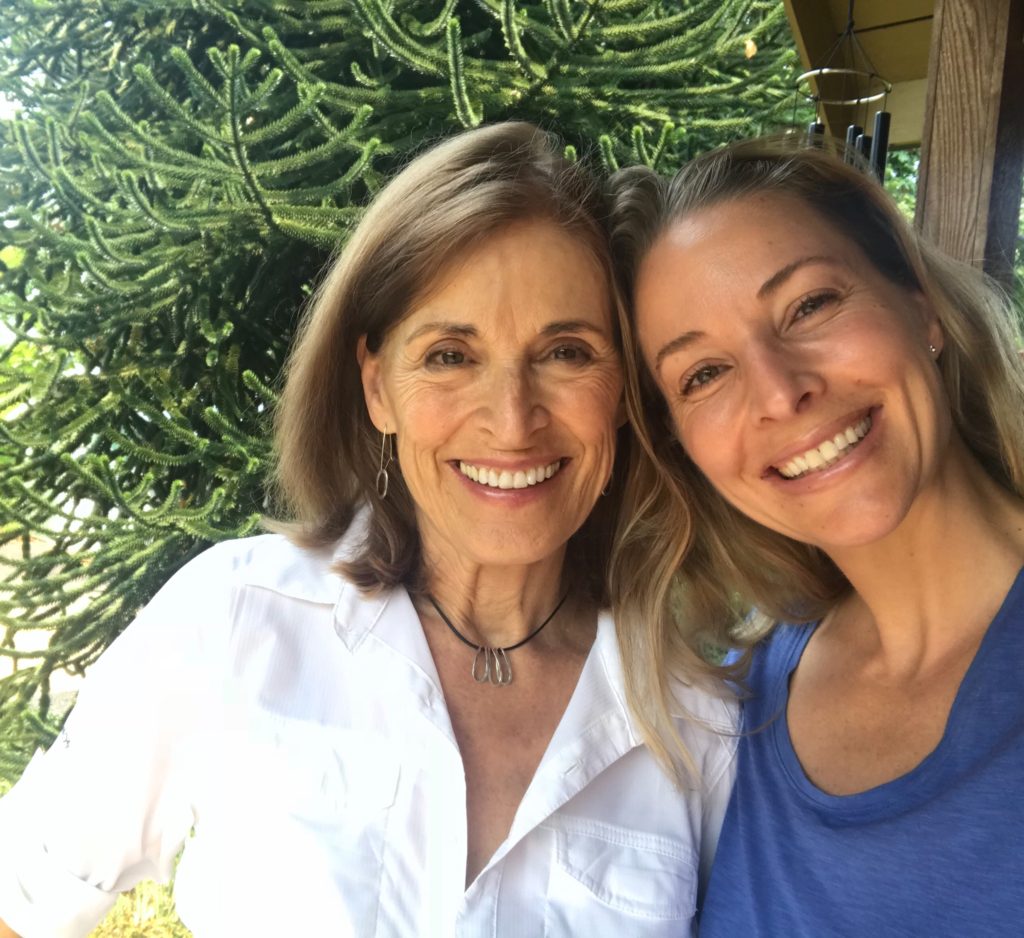
Nance and Kim
How could that be? I asked.
Nance said that in 1974, she’d gone to the Mariposa Folk Festival in Toronto and had a chance encounter with a singer-songwriter named Charlie. Nance had recently learned that her husband, Dave, whom she’d helped put through medical school, had been having affairs, but Nance had never slept with anyone but Dave. She believed she was pregnant with their second child when she set off with a girlfriend for Toronto.
At the festival, Charlie, a handsome, tall, and playful blond, struck up a conversation with Nance and there was instant chemistry—so strong it was palpable. That evening they went for a walk, spread a blanket in a secluded grassy spot, and made love. “For the first time in my life, I was coloring outside the lines,” Nance says. “It was about being young and free.” Her husband had often teased her, calling her “parson,” because while the sexual revolution was raging, she wasn’t playing.
When she returned from Toronto she told Dave what had happened with Charlie. She’d scheduled an appointment with her gynecologist in the coming week, and if she was pregnant, she said, there was a remote—extremely remote—chance that Charlie might be the father. “Are you okay with that? Let’s sleep on it, and tell me in the morning,” she said. But he told her right away: he was okay.
Kim was born 8 months later, weighing 6 pounds, 12 ounces—“hardly a premie,” Nance says. That made her feel sure Kim was Dave’s daughter, and “I didn’t give it another thought.”
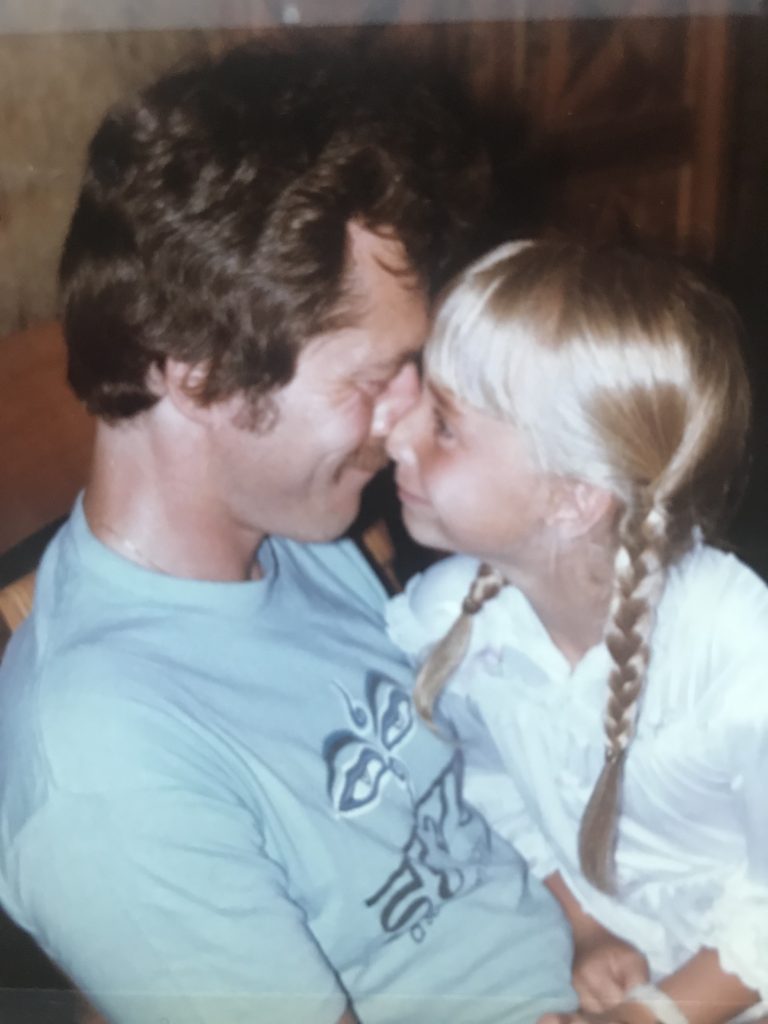
Dave and Kim
Dave was extremely close with Kim, and when she was a senior in high school, he asked Nance to tell her about the small chance that a different man was her bio dad. On a long walk along the lake in Wisconsin where they lived, Nance told Kim, who remembers the conversation but says, “It didn’t seem like a big deal.”
Six months later Dave died in a car accident. “I had such a strong connection with him that the story of a different dad was shoved deep in my unconscious,” she says. Yet she’d always felt, as Dani Shapiro had, that she didn’t belong in her family, that something wasn’t right. “I couldn’t put my finger on why,” she says. “I didn’t look anything like my dad, although my mom said I had his lower lip and his science mind.” Kim loved drawing, writing, and dancing. She played piano, harp, and then took up banjo, which seemed odd; no one they knew played banjo. The first time she’d heard one, though, she was enraptured by the sound.
She enrolled in and dropped out of naturopathic medical school twice. “I was following my dad’s footsteps,” she says. But the second time, at the first lecture, while everyone was madly taking notes, “I was drawing people’s backs,” she says. “I wanted to have fun and celebrate—with music, dance and creativity.” She took a job with a film company and later became an award-winning photographer and filmmaker. A scout recruited her for a modeling job; she was flown around the world for photo shoots and used the income to create short art films.
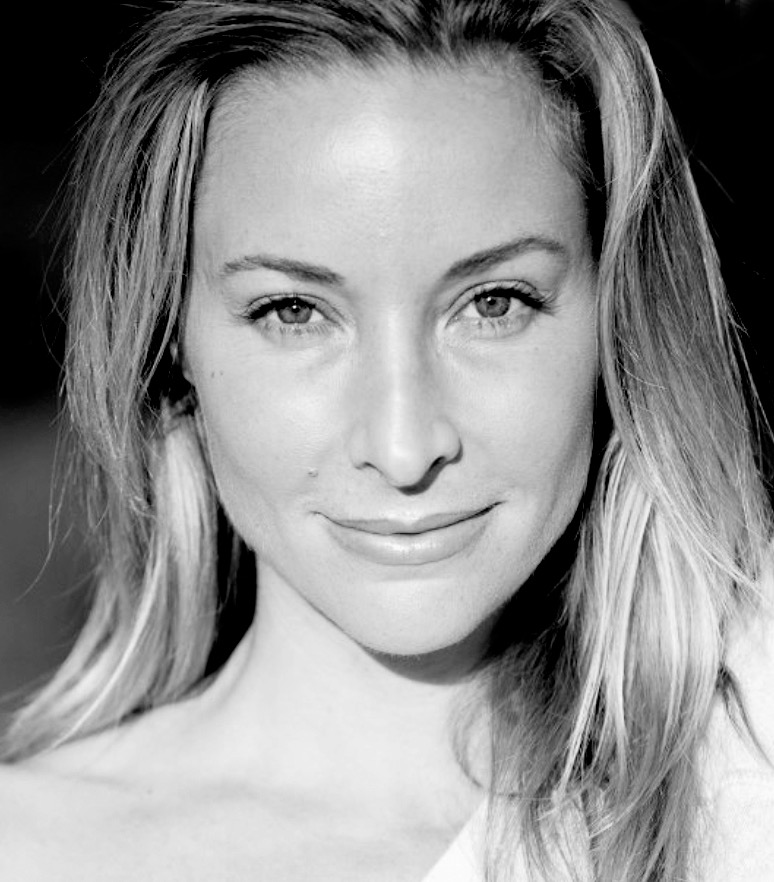
Fast forward to 2016. Kim was turning 41. Her older brother was getting a DNA test and offered to buy her one for her birthday. In recent years, she’d remembered the story about a possible different dad, and she said, “Sure.” She expected the test to confirm that Dave was her father, “and I could stop musing about the alternative.”
The results showed that she and her brother were only half siblings. “It was a shock,” she says. “I’d never really thought it was true.” Her mother, who’d had trouble remembering Charlie’s last name, was able to recollect it, and Kim hit the Internet. She found an album of Charlie’s songs produced at the University of Wisconsin, where he’d gone to school, and learned he’d played banjo—the instrument that had compelled her to learn it. Then she found an obituary! Charlie had disappeared in 1986, after going sailing alone on Lake Michigan. The boat was found, but not his body, and he was presumed dead.
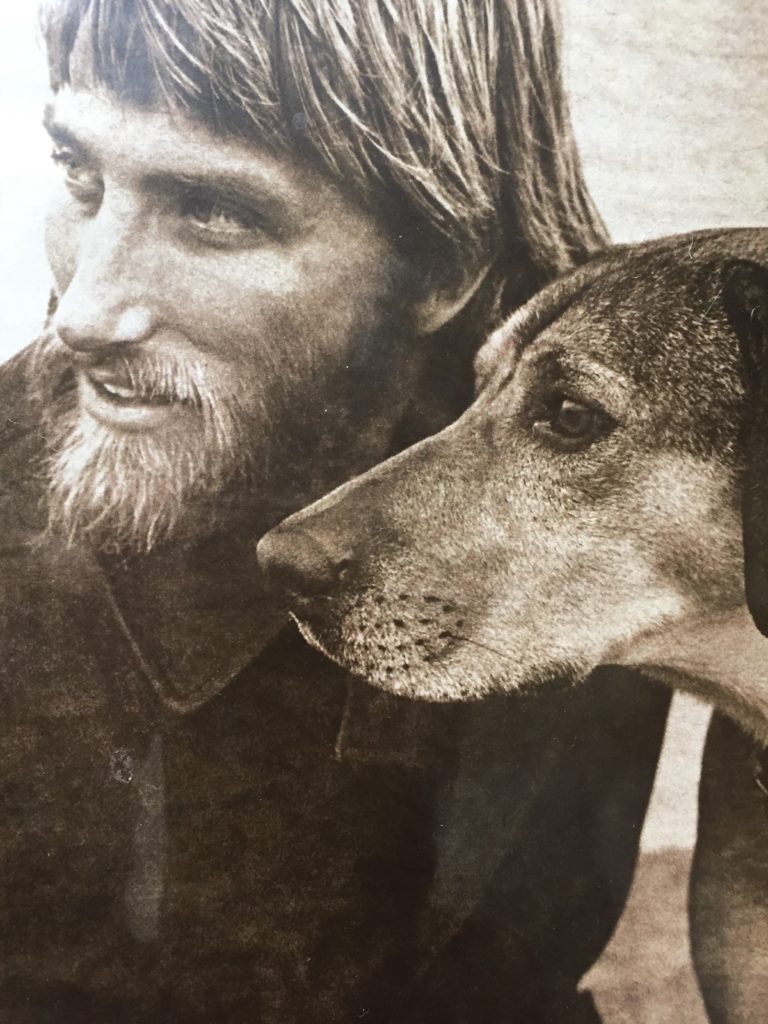
Charlie
One of the pictures she saw had a close-up of his hands. “We had the same hands!” she says. “I have really long nail beds and crooked pinkies. No one else in my family has crooked pinkies, but Charlie and I do.”
From Charlie’s obit, she learned the names of his three siblings, all of whom were involved in the arts. She wrote a graceful, non-intrusive letter to his brother, who had a film production company (another propinquity), and he responded with joy, welcoming her to the family. The siblings had loved Charlie and were devastated when he disappeared. Now they learned he’d left a daughter!
Kim says, “I hit the jackpot with that family. They’re warm and close and pulled me right in.” But she began to have physical ailments and suffered confusion and depression. She was relieved to read Dani Shapiro’s book and learn she’d had similar emotions. ”The most painful part for me was losing the dad who’d raised me—again,” Kim says. “I’d lost him when I was 18, and now I’m grieving him all over. It’s like a constant ache—I wish we could sit down together and talk about this. I’d ask him, ‘What was it like for you—to look at me and not know?’ I could never hear his side of the story.”
She also mourned the father she’d never met. She wished she’d been able to visit him, play music together and share what they wrote. “It’s grief for daddy. I just want a fucking dad,” she says with a laugh. “What I mean is, I’m longing to know myself, and the imprint Charlie left on me is strong. It’s on a cellular level—I’ll carry it all my life.”
While recuperating from a bike accident, she started sculpting cats from nothing but raw wool and a felting needle. It was repetitive and time consuming, but she found it nourishing and settling.
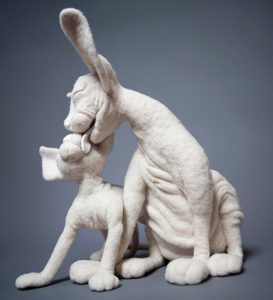
For Kim’s mother, the DNA news was surprising but not disturbing. She has a strong spiritual life and if she has a longing, it’s for “the deeper truth of who we are, beyond our genetic inheritance.” She adds, “Our true nature is mysterious. Our very presence on this planet is a cosmic mystery, and we’re here so briefly.”
Kim wishes she’d been told about the “small chance” early on. She felt solace reading that Dani felt the same way, “that trauma comes from secrecy.” Kim loved the passage Dani quoted from Thomas Mann’s novel, Joseph and his Brothers:
“Everybody has a father…nothing comes first and of itself, its own cause… everybody is begotten and points backwards, deeper down into the depths of beginnings, the bottoms and abysses of the well of the past.”
At-home DNA testing—that’s brought knowledge of their beginnings to Kim, Dani, and Peter—is becoming a full-blown movement. More than 20 million people have taken DNA tests, the majority in the last three years. I see stories about the results almost daily.
But the tests are creating moral and legal issues that have yet to be thrashed out. Some donors are going to court to prevent donor offspring from contacting them. Sperm banks are beginning to only accept “ID disclosure” donors, who agree that when the children turn 18, they have the right to learn the donor’s identity. Andrew Vorzimer, one of the country’s top attorneys in reproductive law, says, “Donor anonymity will suffer the same fate as the cassette tape.”
So be it. When there was a sale recently on Ancestry.com (like my Jewish ancestors I can’t resist a sale), I ordered a test kit. I’m not expecting any surprises.
Stay tuned.
And please tell us what you think. Should there be a protocol for reaching out to unsuspecting relatives? How would you feel if you discovered a family secret about your ancestry? Please leave a comment below.
READ the KINDLE SINGLE, published for the first time: Ram Dass Has a Son! Read for FREE on March 12 and 13, for $2.99 after that — less than a Starbuck’s coffee.
This is fascinating! The previous generation of my family seemed so secretive to me, on both sides, that I’d be interested but not surprised if I found out about all kinds of secrets.
This is fascinating. After participating in 23 and Me, I found out that we had no Native American ancestry, although it had been part of our family lore for decades. I have since been sympathetic to Elizabeth Warren’s story; many of us have believed those family folktales.
The trade-off was finding out we are part Irish, which was a surprise.
Our daughter-in-law found out about eight years ago that her bio dad was a truck driver with whom her mother had a fling. It was upsetting but solved some real mysteries for her. Truth is a good thing!
Again, thanks. I really enjoy your writing.
Just recently I was thinking of something my grandfather used to say. He was born in 1900, and lied about his age to get into the Navy when he was about 13 or 14. He traveled around the world in the bowels of a Navy ship, shoveling coal into the hoppers to fire the engines of the ship. He talked a lot about Constantinople, and the ladies down by the water, when I was a kid. He gave me a tourist picture book of Constantinople , that he bought there……..so with all this DNA info., I’ve been thinking…..did he have an encounter at that young age, near the harbor in Constantinople, with one of the ladies? does my mother have a sibling she doesn’t know? do I have cousins over there?
Great job Sara,
I’m always happy to receive your articles. I have a dear friend who recently discovered his father wasn’t his biological father. When my friend spoke with the father who raised him, he realized that so much of his experience of fatherly love came from this man that this was his primary father. After talking to his biological father, with whom he shared striking physical resemblance, he resolved that this man would be held in a second father position. My friend is lucky that both fathers are alive and that he has developed (or inherited) a reasonable mind.
It’s clear, that any “drop” of misfortune could “tip” the scale and send a reasonable person into an emotional conundrum. Isn’t the 21st Century Grand?
Thank you for this outstanding article.
Keep up the great work,
I am one of the millions you mentioned that took a DNA test within the past three years. Five hundred years ago, it reported, your ancestors were 88% Jewish Diaspora and 12% southern European – Spanish, Portuguese and/or Italian.
I began researching the possibility of Sephardic ancestors, and discovered unexpected stories about the people from whom my DNA had issued.
On my father’s mother’s side, my paternal grandmother is one of 96 siblings and first cousins in one generation, and some of whom intermarried. A cousin in that family told me that his mother had researched and charted this complex tribe, but he didn’t have the chart. Another cousin did, and sent it to me.
The cousin whose mother made the chart told me the story of his recent journey to Hungary to visit the village from whom his father’s family came. After the Holocaust, the villagers began using the empty synagogue as a storeroom. Two generations later, the villagers decided, instead, to restore the synagogue (and the rabbi’s residence and the cemetery) as they had been before the Holocaust.
My cousin owns a business in New York City that makes reproductions of antique building parts for restorations of old buildings. He was astonished at how beautifully and authentically these villagers, none of them Jewish, had restored the synagogue. They showed him the rabbi’s house, which they had not only restored, but also furnished in tasteful period furniture. “It looked like the rabbi had gone out for a walk and would be back any minute,” my cousin told me.
Then he and his wife walked out into the neatly maintained cemetery. All of the headstones were in Hebrew, which he could not read very well, but he found two inscribed in Roman letters: his great-grandfather and his great-grandfather’s brother’s headstones.
He and his wife stood gazing at the headstones with tears coursing down their cheeks. The villagers were deeply moved, too – my cousin and his wife were the first two Jewish people to see the loving restoration they had done. They made a feast to celebrate their coming, and gifted my cousin and his wife with homemade sweets and wine.
Tears filled my eyes reading your story. It’s amazing that non Jews would do such a thing. How wonderful! What a deeply personal and beautiful experience for your cousins!! It’s amazing! Thank you! Joey Bortnick
Thank you, Joey! I am glad it moved you as it did me.
Makes it worth sharing here!
And when Ancestry sells your genome to Google, Amazon, Monsanto, and GlaxoSmithKline ….?
I am saying this gently and constructively, because a similar thing has already been in the news.
http://www.deseretnews.com/article/900028783/the-company-that-analyzed-your-dna-just-sold-the-results-to-someone-else-really-what-are-the-risks.html
Which includes the quote:
” … it was among five genetic-testing companies (including Utah-based Ancestry.com) that agreed to abide by a list of best practices, crafted in conjunction with the Future of Privacy Forum.”
To which quote my response is: “Awwwww, ain’t that nice. Until they change their minds. Or until Ancestry gets bought by, sayyyyy, Geico.”
Just like airplane travel. Safest form of transportation in the world – until it ain’t.
This just came from Gloria Steinem. What do you think?
Sara —
This is all such a great argument for putting more emphasis on adoption of children in need who are already here — and less on sperm and egg donation, which is so much about poverty and, especially for egg donors, about having to take dangerous fertility drugs. Not to mention the ego and possession that sometimes distorts the real crapshoot of biology. I think we could all benefit from your taking it that next step?
Gloria Steinem
NEED YOUR ADVICE !!
This question came from a friend, who seeks your thoughts on her dilemma: Please hit “reply” below.
I found out that I have a half sister who is two years younger. I was able to contact her mother and she asked me not to tell her as she didn’t know. She said her daughter would never forgive her. I agreed to her request and the story goes on… the mother died recently.
I’m not sure at this time what to do…she will find out she is half Jewish and so on.
What would you do?
This seems like a question that totally requires strong connection to one’s guidance! If it were me, I would spend a good bit of quiet, meditative time .. first meditating, myself, to get my mind cleared and my heart and soul connected to Source .. then breathing deeply and steadily as I asked my subconscious heart and mind to connect with my half sister’s subconscious heart and mind. Then I would listen. Mostly with my heart. I would, literally, ask her, from this place of telepathic connection, if she was open to meeting me and opening that door into this other piece of her story in this lifetime.
It’s hard to imagine that knowing isn’t part of her karma but who am I to know for sure? There is a very real chance it could shatter her sense of self at a time when that might not be at all beneficial. It’s impossible to know for sure. I recommend watching the documentary, Three Identical Strangers, as preparatory information as well. It is a very delicate subject.
I believe we are all here learning how to be spiritual beings having a human experience. Tuning in to deeper parts of our receptivity may be a part of your friend’s evolution, Sara. I heartily believe is she practices this sort of tuning in and communication, she will get an answer to her question ♥️
Wonderful article, Sara! It’s all so fascinating. I’ve always, like Nance, leaned more to the side of soul vs. biology .. in other words, the people through whom I biologically emerged never really felt like anyone with whom I share any sort of noteworthy connections. My father died when I was quite young and I was quickly removed from everyone on that side of my biology .. and I always KNEW my mother was a menacing stranger to me .. someone from whom to get as far away as possible as quickly as I could. Try as I may, to this day, I still cannot feel any sort of connection to anyone, dead or alive, on her side of the family. And while I feel a warm affinity to my long-deceased father, it is not one of biology .. nor to his parents or my biological brother who has also passed. I do feel strongly, however, that our souls had contracts for sure.
I have worked (as a therapist) with many adults who were adopted that had a lot of interesting psychological challenges as a result of that .. most had known since they were young children of their biological truth. It still left them feeling all kinds of things that I believe were an integral part of their Earth-school contracts.
How would I feel if I found out I had a different biological father? Well .. I’d want to meet him for sure .. for warmth and interest’s sake .. but in thinking about it today (for the first time), I have never tried to research my real father’s biology to find out more of who I am. While I seem to have his eyes, his warmth, and his sense of humor .. and that’s nice to be able to smile about .. I still don’t identify with any of my ancestors as part of who I am and what I came to the planet to experience and do. Come to think of it, it has alway caught me a bit off-guard when people put so much stock in their ‘ancestors.’ I simple never ‘got’ it!
Anyway, just my two cents to a fascinating topic!
Good piece.
Richard x
Sare, big thanks for writing our story with sensitivity and honesty. I’m very proud of Kim for the ways she’s navigated the DNA results. It’s given her a whole new loving family and brought her and her brother (“half sibling”) into an even closer, loving bond. My hope for her, and for everyone who discovers their genetic inheritance, is that they eventually open to reach beyond their DNA story and its psychological impact to the deeper truth of who/what they truly are…then compassionately serve from that realization.
There is an amazing analogy of this story about a man in Gold Hill, CO. He had a one night fling with a women before shipping out to Viet Nam. Forty plus years later DNA tests connected the daughter that resulted with a relative of his. He now visits her and her children, his grandchildren, regularly. They have transformed his life!
Dear Sara,
Thank you for these intriguing, joyous, and painful experiences many people are having, learning they do not know who is their biological father. I can only imagine the emptiness one would feel, particularly when that father has passed away and there is no possibility to know him. I got my DNA results about 6 years ago, and there have been no surprises for me. But, I have corresponded for years with a 3rd cousin who I met through 23 and Me, and today he told me that he learned he has a half-sister who just learned she is related to ME.. In HS, my brother and his girlfriend got pregnant and gave the baby up for adoption. I think this young lady might be my missing niece. I will learn soon. I do not know if my brother would want to know. Part of the complexity of these days.
All the best, Karen
Interesting article, Sara. And lots of “gray areas” here. It makes a lot of sense to me that a child would want to know at some point if the dad who is raising them isn’t their bio dad. That information is relevant to the child, so if I were the mom, I’d tell my child about this. At the same time, I think that if a man donated sperm years ago with the agreement that they would be doing this confidentially and anonymously, that their right to privacy needs to be respected. (This is out of sensitivity for the wife and/or family of this man – can you imagine what it might be like to be the wife/family of the man mentioned who’d been a sperm donor expecting privacy, and then to learn there are over a dozen offspring?!) When the surprise parenting came from actually sleeping with someone, I think it’s different. Still worth contacting the newly discovered bio-dad and/or family of bio-dad with sensitivity, though.
This is crazy and informative. Thanks for striking about it.
How are things going? I have read the Cowboy and Rock Hudson and enjoyed both of them. Can’t wait to read the next one if yours that you signed for my book group.
Take care, Susan
I too learned that my brother was only my half-brother. Interestingly, while I am pretty sure I am my father’s son, the news was of no apparent consequences to him… like “So what? Doesn’t make any difference to me at this point.” Maybe he knew all along???
I have found many family secrets. One is serving a life sentence now in the California prison system. An aunt in the 1860s was charged with shooting her husband.; released without cause. An uncle in Texas listed his occupation the 1800sas a gambler; was also charged with murder, but acquited.
Whatever we find, there is no reason to be ashamed. It is our history.
Great discussion on one facet of the unexpected results of having your DNA tested.
Another major concern is the ownership and privacy of the test results. Testing companies will not reveal who has access to the test results, raising the question of whether health insurance companies can obtain them and then use the information to deny insurance, or raise rates for insurance, for those persons with previously unknown genetic risk factors.
HI Pat, I thought about that before submitting my sample for the DNA test. Alas, almost nothing is private now. I recently applied for insurance and they had no trouble getting access to my health info, even though I’d signed HIPPA privacy notifications. They knew all the RX meds I was taking, for example. Not sure how they got that info, but it underscored for me how almost nothing can be guaranteed private. So I went ahead with the test. Ancestry lets you opt out of sharing, which I did, but that doesn’t mean it won’t be available somewhere, somehow. As Carly Simon sang in her song: “We have no secrets.”
Hi Sara!
For me, this is the best blog you have ever written. I’d read about Dani Shapiro’s discovery a few months back, and made a mental note to order the book from the library. Now you’ve reminded me again to do so. 🙂 Shapiro also, occasionally, conducts writers’ workshops, and someday, I’d like to take part.
Have you thought of doing the same?
Thank you for this blog.
Oh, here’s my latest one… I try to post every two weeks, and am mostly successful. 🙂
https://hilaryrobertsgrant.weebly.com/blog/jussie-smollett
Hello Sara,
I’m overwhelmed by science and technology. I’m fascinated by all theses stories like finding the graves of long deceased ancestors in foreign lands. Also, I’m concerned about the very possible lack of moral integrity in the people running these DNA testing companies. I don’t have answers and am not certain of the questions as things are changing so rapidly. For me, at least, there will be no DNA tests. While I wish everyone the best of outcomes, I’ll keep praying that they won’t clone another Hitler.
I don’t have time right now to recreate it in any comprehensive fashion; but I’ve written about my own experience with DNA testing here:
https://medium.com/@slm274dec2010/my-other-half-ff6b4f695192
I’ve also briefly mentioned my feelings RE family, heritage, and being born into here:
https://medium.com/@slm274dec2010/i-cannot-fault-the-inspirer-471762bcd605
As to life-approach, I relate most to your friend Nance … quite possibly because my natal chart reveals more about who I am than my family of origin does.
I began reading your brief memoir about Joan didion and ended up reading your blog. There is absolutely no chance that reproductive secrets lie undiscovered in my family. I rather wish there were. But there is nevertheless great mystery in my family and I am currently writing a book about that….I treasure the friendship you have with Joan; i certainly wish I had been so fortunate to have such friendship in my life. I, too, thought that Joan d (and others) could have taught me a great deal–but I never had such opportunity as you did for friendship. I have been struggling along without such insights. So thanks very much for sharing the details of your friendship.
Ram das was a friend of a professor of mine years ago–what a lovely surprise for the former Riichard Alpert. What unexpected joy!
Thank you.
Janet griffin
What a great and provocative piece! Keep up the good work, Sara. I love all of your articles. They keep getting better and better.
A parent is whoever feels like a parent and it has little to do with genes. The same/similar thing applies to family; i.e. family is whoever feels like family. The latter prompted me back in the ’70s to come up with the notion of “family of choice,” which may or may not include people one is related to either by blood or marriage. Placing more emphasis on genes than human behavior undermines the unique responsibilities of a parent when raising a child, including empathy, self-sacrifice, patience, respect, forgiveness, flexibility, long-term vision, and more. I received an Ancestry gift-certificate a couple of years ago. I will never use it.
Great points, Marta. Thanks for responding. I so appreciate your view and gift for expression. think of you often.
Hi, Sara. You and I met by phone in the early ’80s when I was working as a magazine editor for AT&T in New York. You were looking for a publicist for “Real Property” and I offered to help for free. You rightly asked, “Why would you do that?” To which I said something inane like, “I make enough money as it is and I like your book.” Thankfully you didn’t take me up on my offer.
I’m writing now because this post has special resonance for me. In January I discovered — at age 68 — that the man who raised me wasn’t my father after all. Like you, I couldn’t resist the lure of a price discount on an Ancestry.com test. Well, I gotta tell ya… Be careful what you spit for! A nice gentleman contacted me in January to say he was my half-brother (we share the same biological father). BioDad and my mother, who I knew was a bit of a player, hooked up in grad school at the University of Denver. I sincerely doubt she knew she was carrying someone else’s child. She also must have had a physical “type,” because I look like the perfect combination of her and the man who raised me (as well as BioDad, of course).
Even though both my parents (and BioDad) are dead, I’ve been able to prove that the Ancestry tests are right (one of the grand-nephews of the man who raised me is in the Ancestry database… and we didn’t match). I’ve also been able to meet the half-brother who contacted me. He’s a lovely guy and his family has been very welcoming. Ironically, I’ve always thought I was an only child but now discover that I come from a family of 7 (!). Four of them, all women, live in Denver, within five miles of the hotels I have stayed at for the past 9 years when I’ve attended quarterly board meetings for Colorado Women’s College at the University of Denver. I’m hoping to meet them this summer.
I also notice that you’ve moved to Boulder since we last spoke. If you’re still there and would like to grab a cup of coffee when I’m in Denver in mid-July, just let me know.
Meanwhile, thanks for your post. It feels odd to gain a family at my age (I’m also single, so I’ve carried the whole only-child thing deep into adulthood!), but there’s something heartwarming about it, too. This must be happening for a reason, and I’m looking forward to finding out what it is.
Meanwhile, all the best to you, Sara.